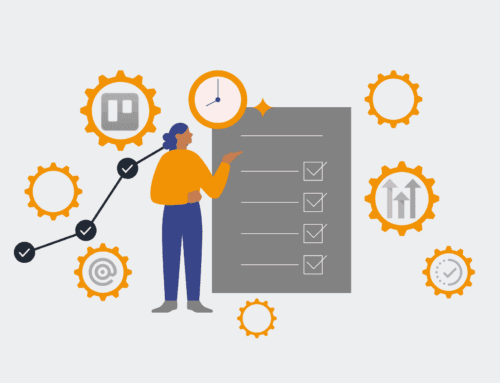Optimizing Interview Scheduling: An HR Automation Checklist
In the relentless pursuit of top talent, the interview process often stands as a critical bottleneck, costing businesses not just time but also prime candidates. Far too many HR teams remain trapped in a manual scheduling labyrinth, a maze of endless email threads, missed connections, and calendar clashes. At 4Spot Consulting, we understand that this isn’t merely an inconvenience; it’s a significant drain on resources, a detriment to candidate experience, and a barrier to strategic HR initiatives. This isn’t about simply saving a few minutes here or there; it’s about transforming a foundational HR workflow from a reactive chore into a proactive, strategic advantage.
The true cost of inefficient interview scheduling extends far beyond the HR department. It impacts hiring managers who lose productive time, candidates who might opt for a more streamlined competitor, and ultimately, the company’s ability to scale. Every hour spent coordinating schedules is an hour not spent on talent acquisition strategy, candidate engagement, or employee development. It’s a prime example of high-value employees performing low-value work, exactly the scenario we help our clients eliminate through intelligent automation.
The Undeniable Imperative for Automation in Interview Scheduling
Consider the typical journey: a promising candidate applies, HR screens, and then the dance begins. Emails fly back and forth proposing times, checking availability, confirming rooms or video links, sending reminders, and then inevitably, rescheduling. This process is inherently inefficient, prone to human error, and frankly, exhausting. What’s more, it projects an image of disorganization to candidates, potentially deterring them from pursuing opportunities with your company. In today’s competitive talent landscape, a seamless, professional candidate experience isn’t a luxury; it’s a necessity.
For organizations striving for growth and operational excellence, manual interview scheduling is an anchor, not a sail. It limits the volume of interviews, slows down the hiring cycle, and diverts HR’s focus from strategic initiatives. Our work with diverse businesses, from burgeoning startups to established enterprises, consistently reveals that once HR leaders recognize the full scope of this challenge, the move towards automation becomes an undeniable imperative.
Building an Automated Interview Scheduling Framework
Shifting from manual chaos to a strategically automated workflow requires a clear vision and the right tools. We’ve seen firsthand how intelligently designed automation can not only streamline scheduling but also enhance every touchpoint of the candidate journey. Here’s a checklist of core components for an effective HR automation strategy in interview scheduling:
Automated Calendar Synchronization and Availability
The foundation of any robust scheduling automation lies in its ability to seamlessly integrate with calendars. This means automatically identifying available slots across multiple interviewers, ensuring no double-bookings, and instantly reflecting changes. Modern automation platforms can connect with Outlook, Google Calendar, and other scheduling tools to present real-time availability to candidates, allowing them to book a time that suits them without any manual intervention from HR.
Intelligent Candidate Matching and Routing
Beyond simple availability, sophisticated automation can match candidates to the most appropriate interviewers based on roles, skills, and even specific interview stages. Imagine a system that automatically routes a candidate for a technical role to engineers with relevant expertise, or ensures a final-round interview includes the department head. This not only saves time but ensures the right people are speaking at the right time, enhancing the quality of the evaluation.
Personalized Communication and Reminders
Once an interview is booked, the automation shouldn’t stop. Systems can be configured to send personalized confirmation emails, calendar invitations, and timely reminders to both candidates and interviewers. These communications can include necessary documents, video conference links, or logistical details, drastically reducing no-shows and ensuring all parties are prepared. The key here is not just automation, but thoughtful, branded communication that reinforces a positive employer brand.
Automated Feedback Collection and Post-Interview Workflows
The interview doesn’t end when the call disconnects. Automation can trigger post-interview feedback forms to interviewers, ensuring timely submission and centralized storage. Furthermore, it can initiate subsequent steps in the hiring process, such as sending follow-up emails to candidates, moving them to the next stage in the applicant tracking system (ATS), or even triggering offer letter generation processes. This entire sequence can be designed to move candidates efficiently through the pipeline, preventing good talent from slipping away due to delays.
Data Analytics for Continuous Improvement
Perhaps one of the most powerful yet often overlooked aspects of automation is its ability to generate invaluable data. By tracking scheduling patterns, time-to-interview metrics, interviewer workload, and candidate drop-off rates, HR teams gain insights to continually refine their processes. This data-driven approach allows for ongoing optimization, ensuring the automation isn’t static but evolves with the organization’s needs.
Partnering for Seamless Implementation
Implementing such a comprehensive automation framework might seem daunting, but it doesn’t have to be. This is where a strategic partner like 4Spot Consulting comes in. Through our OpsMap™ diagnostic, we help identify the specific bottlenecks in your current HR processes and design an automation roadmap tailored to your unique needs. We leverage powerful low-code platforms like Make.com to connect your existing systems – your ATS, CRM, calendars, and communication tools – into a cohesive, intelligent workflow. Our expertise ensures that these solutions aren’t just technical implementations but strategic assets that deliver measurable ROI, often freeing up 25% of your team’s day.
Optimizing interview scheduling isn’t just about efficiency; it’s about elevating your entire talent acquisition strategy. By embracing intelligent automation, you empower your HR team to focus on what truly matters: finding, engaging, and retaining the best people to drive your business forward. It’s about turning a necessary chore into a competitive differentiator, ensuring that your first impression with top talent is one of efficiency, professionalism, and forward-thinking innovation.
If you would like to read more, we recommend this article: Strategic HR Automation: Future-Proofing with 7 Critical Workflows









